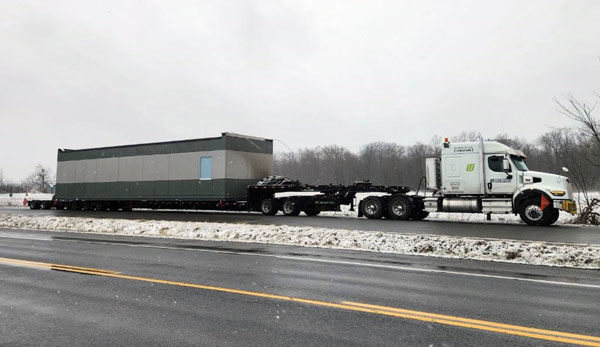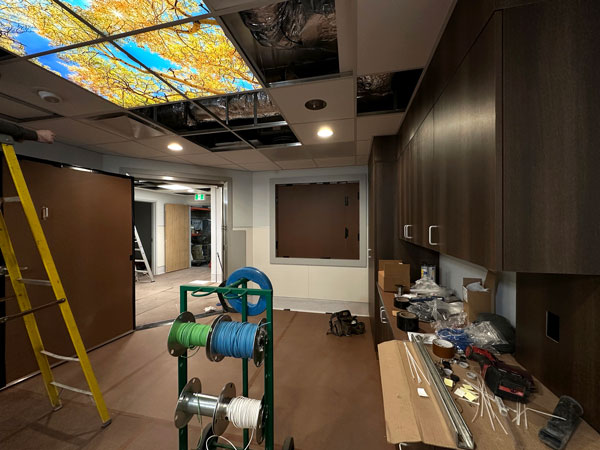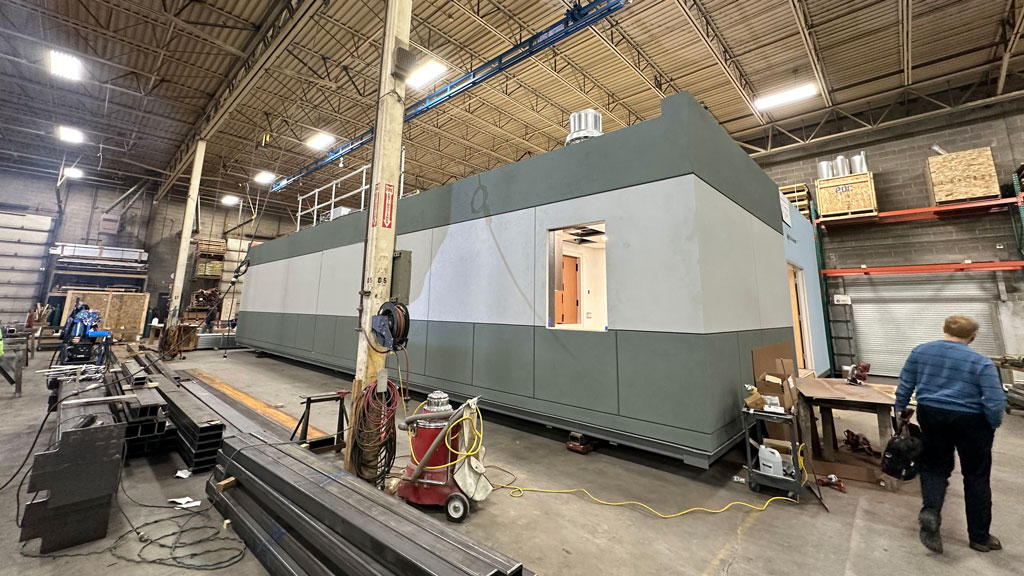Ontario’s first modular MRI scanning unit is being installed at Brockville General Hospital, the first of many using innovative prefabricated design.
Toufic Abiad, president at SDI Canada, the Montreal company selling and installing the 16-by-55-foot units says they can be used for almost any health care related application.
“CTs, MRIs, Xray, mammography, ORs, ERs and radiotherapy, even for long term care or isolation,” he says.
The module is manufactured by a company called PDC in Milwaukee, Wis. trucked and lowered onto footings prepared onsite.
After the physical installation and hook up, it takes another four to six weeks for the equipment to be installed, calibrated, tested and for staff training before it opens for business.
PDC has been designing and engineering the cassettes for 40 years and offers configurations in all shapes and sizes from clinics to specialty suites. SDI has licensed the technology and is preparing to open its own manufacturing centre in Ontario as demand ramps up, especially as provincial government policy green lights more private clinics delivering public medicine.
Nearby Kemptville has also announced a CT module.

“We got the contract in April 2023 and almost a year today we’re delivering,” Abiad says. “With traditional construction this would have taken more than two years. We also came in $1 million less in construction costs.”
The Brockville project is actually two modules, one for the CT, the other for the operators and administration.
Other projects are slated for Manitoba, British Columbia and Quebec. The modules can be constructed in pairs or any combination, including vertically.
Al Page, Brockville General Hospital’s senior project manager of strategy and performance, says originally the unit was conceived as a traditional construction project.
“We were going to make a temporary unit with an MRI in a Seacan container and then build a structure and then move the MRI into the new location,” he says. “It was the cost savings or rather cost control which was attractive with modular and the timeline.”
Saving $1 million and getting the unit up and running in a year rather than two years was the major tipping point, he says.

The hospital researched the concept, talking to hospitals across North America and taking into account the projects PDC has completed globally from Brazil to the Middle East.
“The thing is we’re not building Seacans or school portables here, these are purpose-built units,” he says. “Also our site was quite open to get the structure in here and it meant we didn’t have to bring in skilled labour from Ottawa or even Toronto. In the end the board and senior leadership team were quite excited about this innovation.”
The biggest problem since SDI started offering modular health care solutions, Abiad says, has been pushback from the construction sector.
“But we have to find a way to build smarter,” he says. “Some of these big construction companies are running on fumes for profits. We’re very profitable.”
That said, Abiad notes clients also benefit from faster and less costly completions as do patients.
“We’re democratizing health care,” he says, noting the units can be installed quickly and without intensive use of skilled labour in remote locations, such as Canada’s North where access to high tech medical equipment is limited.
“Also, because these MRIs and other machines have a seven-year lifecycle we can simply replace the cassette (as the modules are called) and reuse it elsewhere. We’re building above code standards with steel because this is health care and these units are high performance units. The structures themselves have the lifecycle of a normal building. These aren’t just container units.”
Demand is ramping up, he says.
“We have six installations underway and six more in discussions and nearly signed,” says Abiad, who envisions entire hospitals built with modular units, each housing a specialty need that can be removed and replaced without disrupting operations.
“During construction or renovation at a hospital, infection containment is a major concern,” he says, adding removing and replacing cassettes allows for better isolation since it won’t impact other areas of operation.
Each cassette is purpose built according to use, with MRIs, for example, specially shielded because of the magnetic resonance employed.
Having a central factory in Ontario also means those trades working there have an anchored job which means more time for family and overall benefit to the community.











Recent Comments
comments for this post are closed